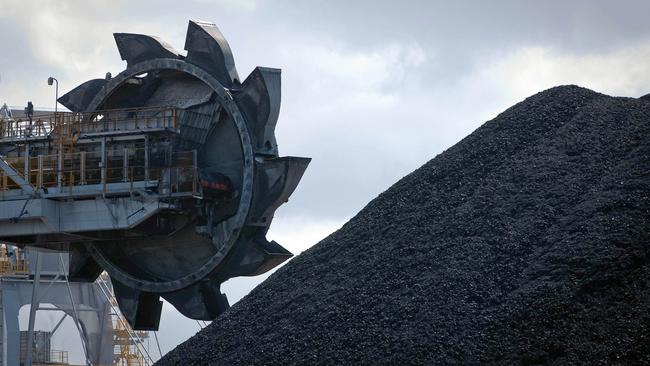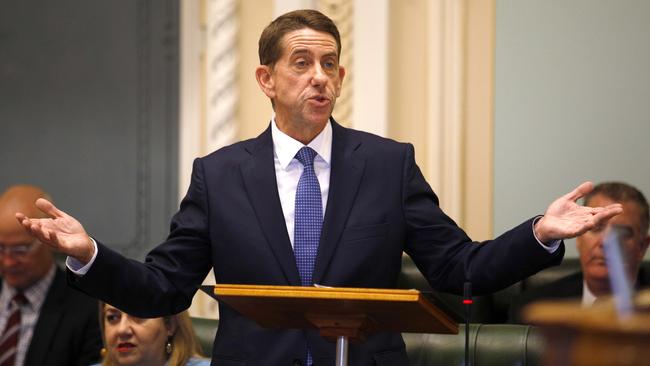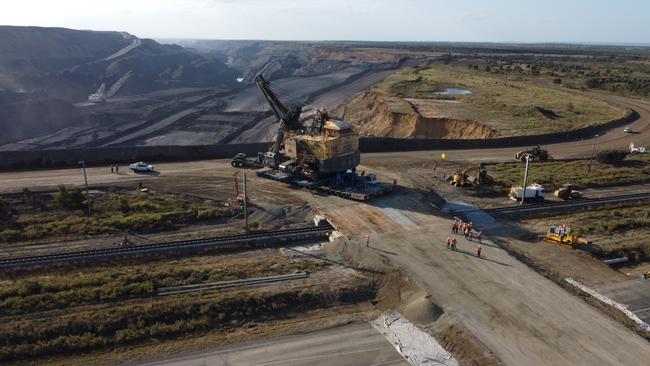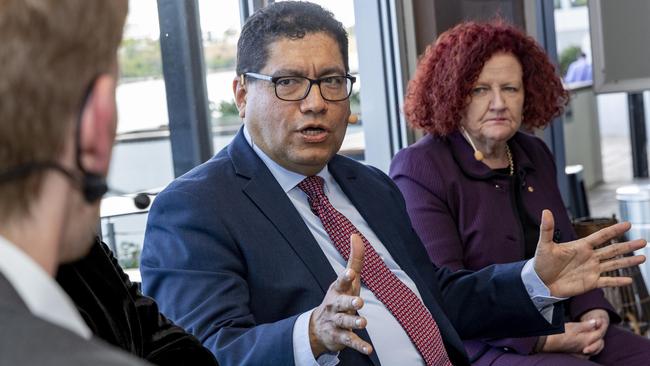Coal royalties to jeopardise mining expansion, threaten Bowen Basin supply chain
Financial giants around the world deem Queensland’s resources industry risky business on the back of coal royalties rises they say will threaten investment, expansion, and jobs.
Business
Don't miss out on the headlines from Business. Followed categories will be added to My News.
The world’s largest banks have deemed investing in Queensland’s resources industry risky business as progressive royalties come into effect.
JP Morgan and Bank of America are among the financial giants eyeing the state’s coal sector with extreme caution, saying the move jeopardises expansions, jobs and the viability of the region’s resources supply chains.
And some fear the other states or countries will replicate the progressive system.
“BHP hasn’t allocated growth capital to Queensland met coal for some time, but the royalty hike now makes it even harder for projects to compete for capital,” JP Morgan said.
“The Queensland industry as a whole has become materially less competitive; lower Australian export tonnes long term may create more room for marginal players in places such as North America.
“We can’t help be concerned that other Australian states (or countries) will view this as a precedent to hike royalties elsewhere.”

Bank of America said the royalties would impact BHP, Glencore, Anglo American and Coronado operations, all of which are in the Bowen Basin.
“In our view, the new higher Queensland coal royalties which are already among the highest globally will limit future investment in new mines in Queensland,” it said.
BHP Minerals Australia president Edgar Basto confirmed the company was “deeply concerned about the negative impact this new tax will have on production, jobs and the communities of Central Queensland”.
“The cost of doing business in Queensland is already high, and further cost pressures will discourage investment, operational growth, job creation and local business spending across the state,” he said.
“A new tax damages Queensland’s reputation as a stable place to invest, and will make it harder for the state to compete against other global jurisdictions in attracting major new investments that would deliver longer term value to communities and the state economy.”

Queensland Resources Council CEO Ian Macfarlane said the sector propped up the state government through the pandemic, and the tax hike was a “kick in the guts”.
He warned the royalties could mean expansion plans were halted, and operators could cut back on future plans “or even cancel them”.
“From this Friday, coal companies face a doubling of their tax bill in the 2022-23 Financial Year if current coal prices continue,” he said.
“This will directly affect employment opportunities and the roughly $20 billion the industry spends statewide with its supply chains each year that will have a flow-on effect on regional centres like Mackay and in the Isaac region.
“Coal producers compete on a global market, so they have to take a long-term view to ride out the highs and lows of the international commodity price cycle.”

A spokesman for Treasurer Cameron Dick said the progressive coal royalties had bipartisan support and were projected to raise $1.2 billion over the forward estimates.
“Bipartisan progressive coal royalties will only collect a portion of coal profits when prices are extraordinary, and will protect coal companies and coal jobs by reducing royalties when the price is low,” he said.
“This is recognised by the market, with continuing strong investment interest for Queensland coal producers.
“Even after these changes were announced, compared to six months ago, Stanmore Coal is worth more than double, TerraCom is worth triple, while Coronado Resources and Bowen Coking Coal are both up more than 40 per cent.
“Importantly, progressive coal royalties are lower than Indonesia applies to thermal coal, and Queensland will have lower royalties than New South Wales when prices are low.

“The Queensland coal industry is experiencing a boom and bipartisan progressive coal royalties will ensure benefits continue to flow to regional Queensland.”
A Coronado spokesman said the company’s geographically diverse operations meant it had an edge over mostly Queensland-based operators, but it would not be immune from the effects of the tax hike.
“Our high-quality Buchanan and Logan met coal mines in the United States will not be impacted by this royalty increase,” he said.
“Companies will always consider investment decisions on a case-by-case basis, and the imposition of additional royalties on Queensland business puts it at a competitive disadvantage to lower cost jurisdictions within Australia and overseas.”
A Bravus Mining and Resources spokesman said stable government policy was needed to shore up investment in mining.
“And now the Queensland Labor Government has made a decision which will seriously impact the competitiveness of our industry,” he said.
“This means new investment in coal projects and the jobs that goes with it are more likely to occur in places other than Queensland.
“It beggars belief that once again regional Queenslanders are being fleeced to plug Labor’s budget black hole in Brisbane.”

Labelling it the “latest Queensland government cash grab”, the Bravus spokesman said the royalties threatened the “future and prosperity of communities like Townsville, Rockhampton, Clermont, Moranbah, Emerald and Mackay”.
“Our industry carried Queensland through the global pandemic, creating jobs and contracting opportunities for thousands of workers and injected billions of dollars into the state at a time of great uncertainty,” the spokesman said.
Mr Macfarlane warned the increased royalties threatened the entire supply chain.
“It’s very unfair for the Queensland Government to step in now prices are high and claim they deserve a bigger share of the tax pie, when under the previous system, coal companies will pay four times as much in total royalties this year compared to last year,” he said.
“It’s madness to think the decision to hike up taxes on our sector is not going to have a massive, detrimental impact on the Central Queensland economy in the medium to long-term.”
Resource Industry Network international trade committee chair Tim Magoffin said there were concerns about “any move that potentially could stifle investment”.
“It’s an industry effect,” he said.
“It’s the potential to take money out of the supply chain; the potential to squeeze the supply chain.
“I wouldn’t say there is excess profitability (in the sector) with high input costs when the resources houses are hit with increased royalties, it’s more the environment that might stifle investment going into the future.
“It is taking money out of resource company pockets.
“Mining houses make commercial decisions, they want a bit of predictability.”
Mr Magoffin said mining, engineering, training and services businesses in the Mackay and Paget areas had developed from the Bowen Basin and believed they would be able to transfer to other industries including renewables.
“Businesses need to be strong and vibrant to transition into those areas,” he said.
“I think government of all persuasions need to be very mindful of creating a positive investment environment.”





